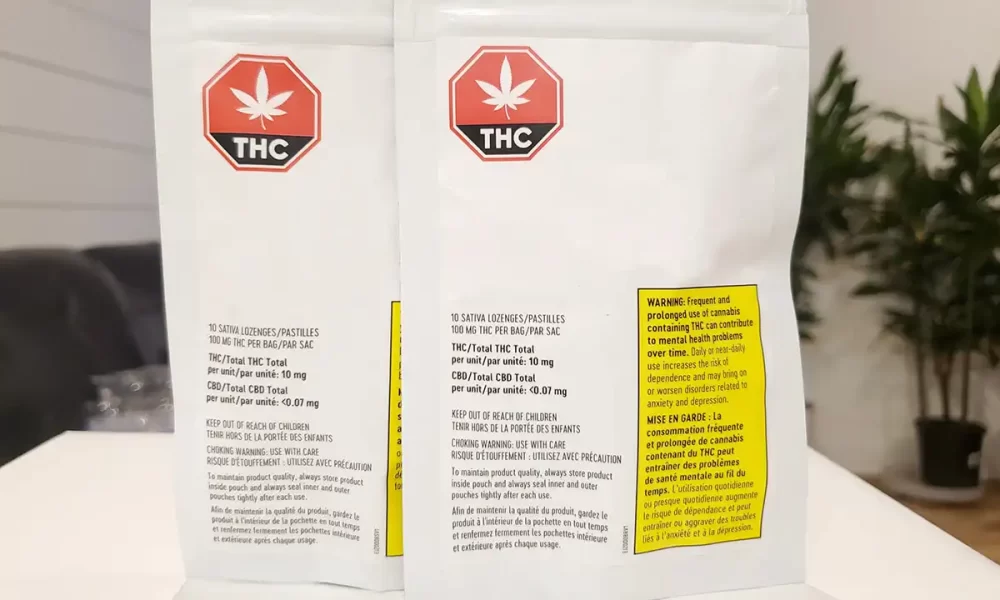Business
Ontario Cannabis Store joins calls to raise Canada’s THC edibles cap

Pressure is growing on the Canadian government to adjust the THC limit governing cannabis edibles, with the country’s largest adult-use wholesaler calling on the nation’s marijuana regulator to consider such a move.
In a position paper sent to Health Canada, the Ontario Cannabis Store (OCS) also urged the agency to address the cannabis industry’s “unsustainable” environmental footprint – particularly the impact of packaging and single-use plastics.
In recommending a hike in the THC edibles cap, the OCS joins a growing chorus of voices urging a change.
The current cap is set at 10 milligrams per package, a level critics say is too low to displace the illicit market.
“Were Health Canada to increase the current limit – (for example) from 10 milligrams to 50 milligrams per package – a low THC limit for edible cannabis could be maintained relative to other legal product classes and illegal products, while offering products that compete with illegal alternatives, reducing health risks associated with their use,” an OCS spokesperson told MJBizDaily via email.
“This also allows producers to achieve greater economies of scale to drive down costs.”
The OCS position paper – “Opportunities to Improve the Canadian Federal Cannabis Framework” – identifies challenges from the government-owned wholesaler’s perspective and offers suggestions for Health Canada to consider amid its ongoing review of the country’s legal marijuana framework.
The panel’s final report will be delivered to Canada’s health minister in early 2024.
Other appeals for change
In May, the nation’s federal Competition Bureau released a set of recommendations that included a call for Health Canada to consider increasing THC limits on cannabis edibles.
And in its own submission to the Health Canada review panel, the Canadian Chamber of Commerce suggested that increasing the THC limit in edibles to 100 milligrams per package could minimize harm to the public by making the legal industry more competitive with the illicit market.
Omar Khan, chief communications and public affairs officer for Calgary, Alberta-based cannabis retailer High Tide, said increasing the THC limit in edibles packages is a logical step.
“And I don’t think it’s divorced from public health. We have to understand that there are a lot of illicit-market edibles available right now,” he told MJBizDaily in a phone interview.
“I’ve seen examples of some (edibles) currently available online for up to 900 milligrams of THC, and many of these are in packaging clearly targeted toward youth and kids.”
Khan noted a 2022 study conducted by the OCS and the Ontario Provincial Police (OPP) outlining the agencies’ analysis of legal and illegal cannabis edibles products.
The analysis found that illegal products contained significantly less THC than advertised and contained pesticides not authorized for use on cannabis.
“To me, at face value, that poses a significant risk to public health,” he said.
Packaging a problem
The OCS report also said Canada’s cannabis packaging rules have contributed to an “unsustainable” environmental footprint for the legal industry.
The wholesaler wants the government to explore opportunities to reduce the environmental impact of cannabis packaging.
The OCS position paper says most cannabis is packaged using single-use plastic containers, “which, in many cases, are not recycled.”
The OCS said Health Canada could consider:
- Taking steps to improve the recyclability of cannabis packaging.
- Permitting recycling instructions or symbols on packages.
- Supporting producer competitiveness by creating financial incentives to package products using renewable materials.
The OCS spokesperson said the legal industry’s contribution to single-use plastic waste has been a consistent focus of criticism.
“The OCS is recommending Health Canada leverage the legislative review process to align its packaging requirements with the federal government’s broader mandate to implement a national ban on harmful single-use plastics and achieve zero plastic waste by 2030,” the spokesperson said.
The remaining OCS recommendations included:
- Expanding brand-preference promotions for edible cannabis and cannabis topicals.
- Clarifying the permissibility of online product reviews for legal retailers.
- Adjusting product labeling requirements.
- Changing labeling requirements for CBD-dominant products.
- Adjusting the concentration statement for ingestible cannabis extracts.
- Establishing national standards for third-party testing.
The internal Terms of Reference guiding the Cannabis Act review is available here.
Source: https://mjbizdaily.com/ontario-cannabis-store-seeks-increase-in-canada-thc-edibles-cap/